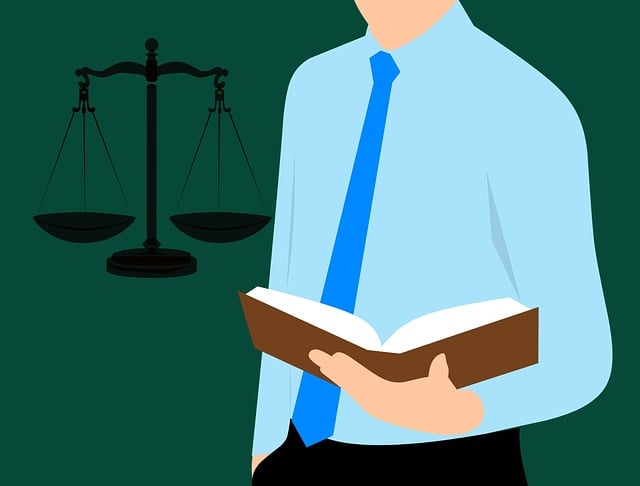
Category: Lakewood Colorado Bankruptcy Lawyer
Lakewood Colorado Bankruptcy Lawyer: Navigating Financial Resilience and Legal Expertise
Introduction
In the intricate web of financial management, bankruptcy stands as a pivotal legal process, offering individuals and businesses a path towards financial rebirth. At the forefront of this critical practice in Lakewood, Colorado, are skilled attorneys who specialize in guiding clients through the complex terrain of bankruptcy laws. This article delves into the multifaceted world of ‘Lakewood Colorado Bankruptcy Lawyer’, exploring their role, impact, and the intricate dynamics they navigate to provide much-needed legal assistance. By understanding this specialized field, individuals facing financial challenges can make informed decisions and access the support they require to chart a course towards financial stability.
Understanding Lakewood Colorado Bankruptcy Lawyer
Definition and Core Components
A ‘Lakewood Colorado Bankruptcy Lawyer’ is a legal professional who practices in the area of bankruptcy law within the jurisdiction of Lakewood, Colorado. They are experts in guiding clients through the U.S. Bankruptcy Code, which governs insolvency cases. The core components of their practice include:
- Debt Relief: Assisting individuals and businesses in managing and reducing their debt obligations.
- Filing Petitions: Preparing and filing bankruptcy petitions with the U.S. Bankruptcy Court for the District of Colorado.
- Asset Protection: Advising clients on safeguarding assets during bankruptcy proceedings.
- Debtor Education: Providing financial education to help clients understand their rights and responsibilities.
- Creditor Interactions: Communicating with creditors on behalf of clients to negotiate debt repayment plans or resolutions.
Historical Context and Significance
Bankruptcy laws have evolved over centuries, reflecting societal shifts in debt management and economic hardship. In the United States, the Bankruptcy Code was first enacted in 1898, providing a structured approach to address insolvency. Today, bankruptcy offers a fresh start for individuals and businesses burdened by overwhelming debt. Lakewood Colorado Bankruptcy Lawyers play a pivotal role in this process, ensuring clients navigate the legal complexities with guidance tailored to their unique circumstances.
Fitting into the Broader Legal Landscape
Within the broader legal field, bankruptcy law is a specialized practice area. These lawyers must stay abreast of changing federal and state laws, regulations, and court interpretations. Their expertise allows them to offer strategic advice, helping clients understand their options and make informed decisions regarding debt repayment or discharge. By providing this specialized service, they contribute significantly to the financial well-being of their community.
Global Impact and Trends
International Influence
The global impact of bankruptcy laws is evident in various countries adopting similar frameworks to address insolvency. The U.S. Bankruptcy Code serves as a model for many nations, influencing legal reforms worldwide. Lakewood Colorado Bankruptcy Lawyers, while focused on local practices, contribute to this international dialogue by sharing their expertise and experiences with international counterparts.
Shaping Trends
Several key trends are shaping the landscape of bankruptcy law globally:
- Cross-Border Insolvency: With increasing global business interactions, cross-border insolvency cases are rising, requiring coordination between jurisdictions.
- Digitalization: The adoption of digital platforms for filing petitions and court proceedings streamlines processes, making bankruptcy more accessible.
- Debt Restructuring: A growing emphasis on debt restructuring as a preferred solution over liquidation, reflecting a shift towards sustainable financial recovery.
Regional Variations
Different regions within the United States, including Colorado, may have unique perspectives and challenges:
| Region | Notable Trends | Challenges |
|---|---|---|
| Colorado | Rising student loan debt among younger residents, impacting their financial stability. | Complex asset protection due to diverse property ownership patterns. |
| Northeast | High cost of living, affecting the ability to repay debts. | Strict bankruptcy eligibility criteria due to stringent state laws. |
| Midwest | Agricultural sector’s vulnerability to economic downturns. | Limited access to specialized legal services in rural areas. |
Economic Considerations
Market Dynamics
The bankruptcy market is influenced by various economic factors:
- Recession and Unemployment: During economic downturns, bankruptcy filings often increase as individuals struggle with job losses and reduced income.
- Housing Market: Fluctuations in property values can impact asset protection and the overall financial health of debtors.
- Debt Burdens: Rising consumer debt, particularly from credit cards and personal loans, contributes to bankruptcy trends.
Investment Patterns
Investment strategies for individuals and businesses facing bankruptcy involve:
- Asset Liquidation: Selling non-exempt assets to repay creditors.
- Debt Restructuring: Negotiating with creditors for reduced or extended repayment terms.
- Fresh Start: Utilizing bankruptcy as a means to obtain a financial reset, enabling better long-term planning.
Economic Systems and Bankruptcy
Bankruptcy plays a crucial role in economic systems by:
- Promoting Business Continuity: Allowing businesses to reorganize and continue operations, preserving jobs and local economies.
- Preventing Financial Cascading: Averted domino effect of bankruptcies by providing a structured resolution process.
- Encouraging Responsible Borrowing: Serves as a deterrent for excessive borrowing, fostering responsible financial practices.
Technological Advancements in Bankruptcy Law
Digitalization Benefits
Technological advancements have revolutionized bankruptcy practice:
- E-Filing: Streamlines the filing process, reducing paperwork and processing time.
- Online Court Access: Enables debtors and creditors to monitor case progress online, enhancing transparency.
- Data Analytics: Advanced analytics assist in identifying trends, predicting outcomes, and optimizing legal strategies.
Challenges and Considerations
While technology offers advantages, it also presents challenges:
- Cybersecurity: Protecting sensitive client data from cyber threats is essential.
- Digital Divide: Ensuring access to digital platforms for all clients, including those with limited technological resources.
- Ethical Use of AI: Balancing the use of artificial intelligence in legal research and case prediction with ethical considerations.
The Role of Lakewood Colorado Bankruptcy Lawyers
Client Counseling
Bankruptcy lawyers provide essential counseling services:
- Debt Management: Helping clients understand their debt obligations and potential repayment options.
- Budgeting and Financial Planning: Teaching clients how to create sustainable budgets post-bankruptcy.
- Legal Advice: Offering guidance on legal rights, responsibilities, and potential outcomes.
Court Representation
They represent clients in various court proceedings:
- Filing Petitions: Preparing and submitting bankruptcy petitions, ensuring compliance with legal requirements.
- 341 Meetings: Attending and conducting examinations during the meeting of creditors.
- Court Hearings: Representing clients at hearings to address objections or modify repayment plans.
Asset Protection Strategies
Protecting assets is a critical aspect of bankruptcy law:
- Exemptions: Utilizing state and federal exemptions to safeguard certain property from seizure.
- Asset Sale: Negotiating the sale of non-exempt assets to fund creditor claims while preserving essential possessions.
- Business Structuring: Advising businesses on restructuring to protect valuable assets and maintain operations.
Common Types of Bankruptcy in Colorado
Chapter 7: Liquidation
- Overview: Involves liquidating non-exempt assets to repay creditors.
- Eligibility: Available to individuals with significant unsecured debt.
- Outcomes: Debts are discharged, allowing a fresh start, but some assets may be lost.
Chapter 13: Debt Restructuring
- Focus: Enables debtors to create a repayment plan to pay off creditors over three to five years.
- Benefits: Allows individuals to keep most non-exempt assets and stop foreclosure or repossession actions.
- Use Cases: Ideal for those with regular income but significant debt, like credit card balances.
Chapter 11: Business Reorganization
- Purpose: Provides businesses with a framework to reorganize and repay debts over an extended period.
- Applicability: Suitable for businesses facing financial challenges but not necessarily facing liquidation.
- Result: Helps preserve businesses, protect jobs, and facilitate debt repayment.
Mitigating Client Risks and Ensuring Compliance
Legal Education and Awareness
Lakewood Colorado Bankruptcy Lawyers play a vital role in debtor education:
- Pre-Filing Counseling: Providing pre-bankruptcy counseling to help clients understand their options and avoid unnecessary filings.
- Financial Literacy: Educating debtors on financial management, budgeting, and the impact of bankruptcy on credit scores.
- Post-Bankruptcy Planning: Assisting clients in rebuilding their financial health post-bankruptcy.
Compliance with Changing Laws
The legal landscape is ever-evolving, requiring lawyers to:
- Stay Updated: Regularly review changes in bankruptcy laws and regulations.
- Ethical Practice: Adhere to ethical standards and professional conduct rules.
- Client Communication: Keep clients informed about any changes that may impact their case.
Building Trust and Community Engagement
Establishing Trust
Building trust is essential for effective client relationships:
- Transparency: Providing clear, honest communication about the bankruptcy process and its implications.
- Confidentiality: Ensuring client privacy and maintaining strict confidentiality.
- Accessibility: Being responsive to client inquiries and concerns.
Community Outreach
Lakewood Colorado Bankruptcy Lawyers can contribute to their community through:
- Workshops and Seminars: Conducting educational sessions on bankruptcy and financial literacy.
- Pro Bono Services: Offering pro bono legal assistance to those who cannot afford representation.
- Collaborative Initiatives: Partnering with local organizations to address financial challenges in the community.
Overcoming Challenges in Bankruptcy Practice
Ethical Dilemmas
Lawyers may face ethical challenges:
- Conflicting Interests: Navigating potential conflicts between client interests, especially in multi-debtor cases or complex assets.
- Client Expectation Management: Balancing client expectations with legal realities and limitations.
- Privacy Concerns: Upholding client privacy while complying with disclosure requirements.
Case Complexity
Complex cases require specialized skills:
- Business Cases: Dealing with intricate business structures, multiple creditors, and tax implications.
- High-Asset Cases: Handling sophisticated asset protection strategies and significant financial transactions.
- Co-Debtor Issues: Addressing the rights and obligations of co-debtors, guarantors, or joint tenants.
The Future of Bankruptcy Law in Colorado
Emerging Trends
The future of bankruptcy law may include:
- Technology Integration: Continued adoption of technology to streamline processes and enhance client experiences.
- Personalized Legal Services: Tailoring legal strategies to meet individual client needs.
- Alternative Dispute Resolution: Encouraging mediation and arbitration as alternative methods for resolving disputes.
Advocacy for Debtor Rights
Lawyers can advocate for debtor rights by:
- Policy Change: Engaging in policy discussions to shape bankruptcy laws that balance creditor interests with debtor relief.
- Access to Justice: Working to ensure access to legal representation for all debtors, regardless of financial means.
- Community Awareness: Raising awareness about bankruptcy options and available resources within the community.
Conclusion
Lakewood Colorado Bankruptcy Lawyers play a crucial role in assisting individuals and businesses facing financial challenges. By combining legal expertise, technological proficiency, and a commitment to client service, they help clients navigate complex bankruptcy processes, protect their rights, and secure a fresh start. As the legal landscape evolves, these lawyers must continue to adapt, ensuring that access to justice remains a cornerstone of the bankruptcy system.









